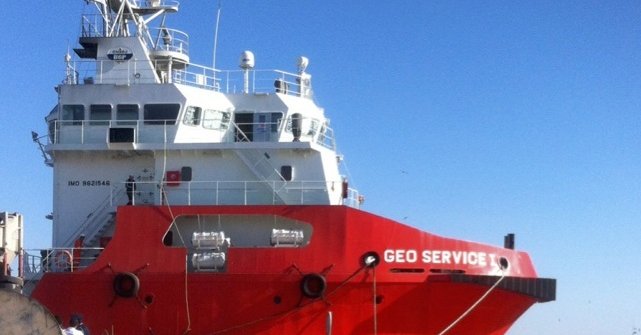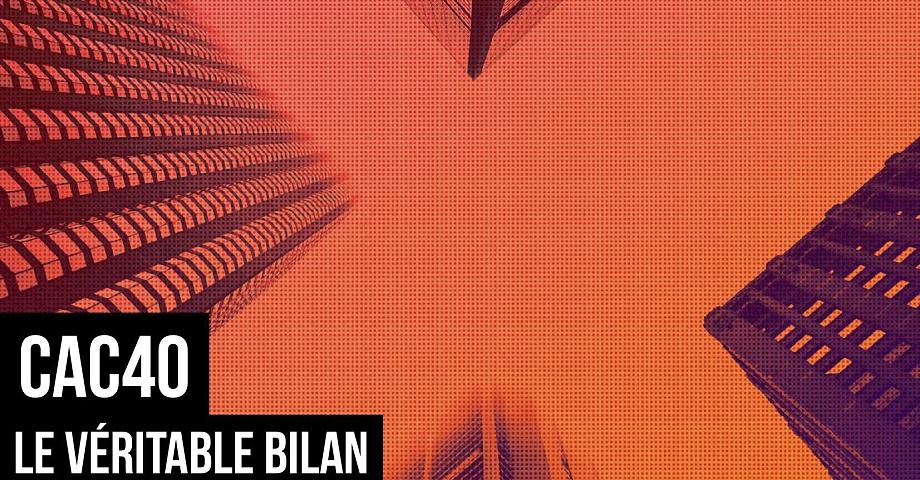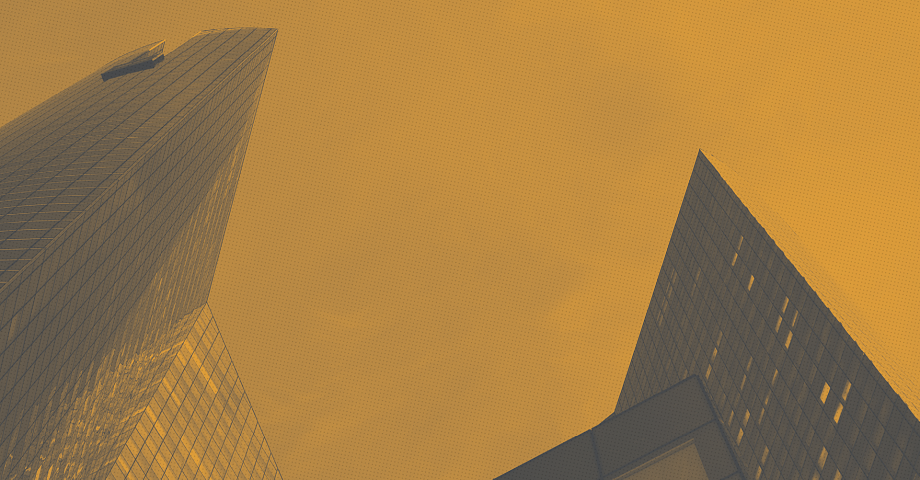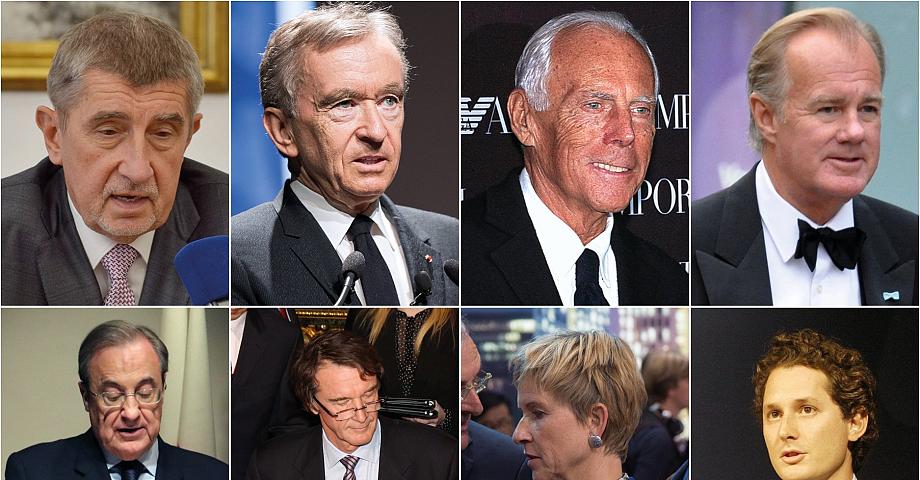Norway’s sovereign wealth fund is Total’s fourth-biggest investor with slightly more than 2 percent Total stake, worth about $3 billion. This fund has recently announced that it is examining Total’s operations in Western Sahara to ascertain whether they comply with the fund’s code of ethics.
Total has been awarded a exploration licence for a 100,000-square-kilometer area off the Western Saharan coast. This area, called the "Anzarane block", is equivalent to Portugal’s surface area. First issued by Morocco in 2002, the licence has recently been renewed for conducting reconnaissance operations. The French firm claims that no licence for exploratory drillings has been requested to date.
Advocacy groups defending the rights of the Saharawi people, particularly Western Sahara Resources Watch (WSRW), challenge the legality of the licences awarded to Total and to other oil and gas companies by the Moroccan government in Western Sahara.
Business is business
Advocates for Saharawi people claim that Total is working with an "occupying government", and therefore it undermines and de-legitimizes the Saharawi people’s struggle for self-determination: "The oil industry is becoming an obstacle in terms of putting pressure in Morocco to accept that right [to self-determination],” says Erik Hagen, WSRW’s chair.
Last year, the advocacy group published a report, titled "Totally wrong", that was very critical of Total’s role in Western Sahara. “Total shows a complete disregard of basic principles of corporate social responsibility. It refuses to listen to any talks of the legitimate rights of the people of the occupied territory”, stated Erik Hagen at the time. According to WRSW, Total refuses to clarify its plans in Western Sahara and shirks of its responsibilities by saying as an excuse that it is not involved in politics.
In response to the recent announcement by the Norway sovereign wealth fund, Total told Reuters its "operations offshore in Western Sahara, as in other places where [it operates], are in line with the applicable international laws and standards mentioned in [its] Code of Conduct, in particular those related to human rights".
As highlighted by a recent article published in Le Monde (article focused on Total’s involvement in Russian shale oil in the midst of the Ukrainian diplomatic crisis), "Total’s policy has always been to continue its activities in controversial countries as long as there are not banned by the French government or the United Nations, like in Iraq and in Iran".
Divestment
The Sovereign Fund of Norway, whose portfolio’s total value is €600 billion, has put in place ethical guidelines. In accordance with these guidelines, the fund has already dropped its investments in 63 companies, mainly makers of nuclear weapons, anti-personnel landmines and tobacco producers. The fund is currently considering an upgrade of its ethical exclusion criteria: it could exclude investments in oil and gas companies operating in countries presenting a high risk of corruption, garment companies that violate worker’s rights and firms involved in overfishing and forest destruction. It could even stop investing in fossil fuels (a paradox for a fund tasked with investing Norway’s oil and gas revenues).
In 2005, the fund had already divested from another oil company then active in Western Sahara: Kerr-McGee. In June 2013, the Norwegian life insurance firm KLP had also announced its disinvestment from Total because of its activities in Western Sahara.
Another multinational oil company has been awarded from an exploration licence by the Moroccan government in Western Sahara: the "junior" company Kosmos Energy. This firm is specialized in "pioneer" exploration activities, it is well known for having discovered and exploiting the Jubilee field off the Ghanaian coast [1]. Kosmos also has exploration activities, along with BP, in Morocco off Agadir and Essaouira. It has recently announced that it intends to start similar projects next October in the Cap Boujdour block, located offshore Western Sahara.
"Interest and aspirations of the people of Western Sahara"
Until 1976 Western Sahara was a Spanish colony. Then it has been occupied by Morocco which has claimed sovereignty over it ever since. This resulted in a decade-long war between Morocco and the Algerian-backed independence movement Polisario Front. In 1991, a ceasefire has been imposed by the United Nations, which provided for the organization of a self-determination referendum on the region’s fate. That vote never took place due to disagreements over Moroccan settlers’ right to participate in the referendum. To date, no other state recognizes Moroccan sovereignty over Western Sahara.
After Morocco awarded its first reconnaissance licenses for oil exploration in Western Sahara in 2002, an equivocal legal opinion known as the Corell Opinion has been issued by the United Nations. It recognizes Morocco as the de facto administrative power of Western Sahara and states that oil-related activities are legal only if they are not undertaken “in disregard of the interests and aspirations of the people of Western Sahara".
The Moroccan government and oil companies hurried to highlight the "positive economic benefits" of oil-related activities in order to justify their decisions. Moroccan authorities claim they want a "fair distribution of profits" with Saharawi – although they only point out to potential job creation at this point, without any mention of further economic benefits or revenue-sharing. When it recently renewed the licenses of Total and Kosmos, the Moroccan government also promised that "local communities and their representatives will be consulted and associated", without any further clarification. Since 2002, date of publication of the Corell Opinion, nothing has been done in terms of a formal consultation process.
Saharawi support organisations claim that local communities are opposed the operations of multinational oil companies. And that, according to the terms of Corell Opinion, licences issued by Morocco are thus illegal.
The territory is still under occupation by the Moroccan army. A large part of the Saharawi people lives in exile and in refugee camps. In a 2013 report, the United Nations Special Rapporteur on Torture states that torture and violence by Moroccan authorities are frequent in Western Sahara. Therefore, can one really consider that Saharawi are free to give their consent to Total and others’ activities ?
Olivier Petitjean
—
Photograph: Western Sahara Resources Watch




